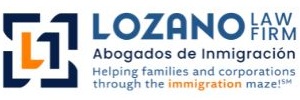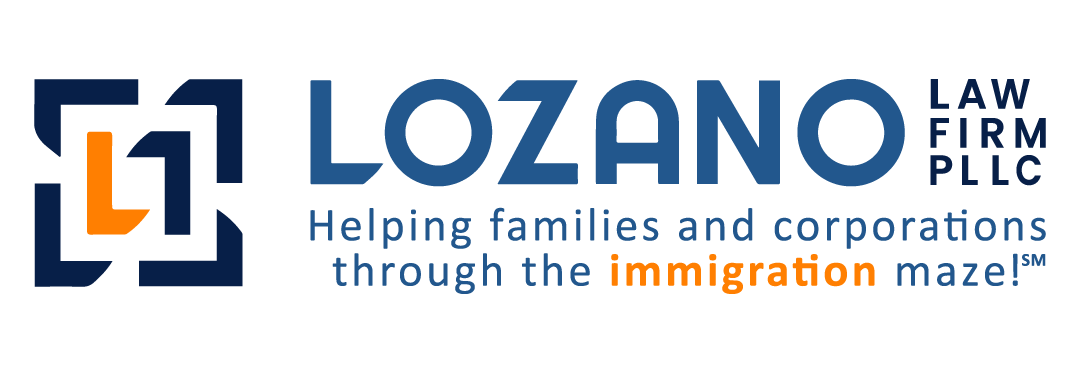TL;DR:
- E-1 visas allow treaty traders to hire employees from their home country, provided they meet specific conditions.
- The employee must share the same nationality as the employer and fill a supervisory, executive, or essential role.
- Both the employer and employee must meet the requirements set by the U.S. Department of State.
- The business is engaged in substantial international trade between the U.S. and the treaty country.
Running a company across borders can be deeply rewarding, but it also comes with challenges. You often need trusted, qualified employees to help bridge your operations between your home country and the U.S.
If you’re operating under an E-1 Visa, one question likely arises: Can your employees from back home work in the U.S. under this visa? The short answer is yes—if they meet specific legal conditions.
What Is An E-1 Visa?
Before deciding to bring employees from abroad, it’s vital to know what the E-1 visa allows. This visa permits nationals from treaty countries to engage in significant international trade with the U.S.
E-1 visa supports individuals or companies that move goods, services, or technology between the two nations. It includes both business owners and certain key employees who meet eligibility requirements.
Next, we’ll define legal terms critical to your application and decision-making.

Definition Table Of Important Terms
Knowing immigration terms is essential when evaluating visa options. Each one listed here is critical in determining whether your employee qualifies for an E-1.
| Term | Meaning |
| Treaty Country | A nation that maintains a qualifying trade treaty with the United States. |
| Substantial Trade | A continuous flow of sizable international trade items, including services or technology. Does not set a specific dollar amount, but the trade must be sizable and ongoing. |
| Executive or Supervisory Role | A position with broad decision-making authority or managerial oversight within the company. |
| Essential Skills | Specialized knowledge that is critical to the effective operation of the U.S. business. |
| Same Nationality | The employee must share the nationality of the treaty trader or the business’s majority ownership. |
With those definitions in place, we can better understand who is eligible to accompany you to the U.S. under an E-1 visa. Let’s examine the rules around employees.
Can You Bring Employees From Your Country?
Treaty traders often wish to bring familiar and trusted employees into their U.S. operations. Fortunately, the law allows this, but the requirements are specific and not flexible.
You can bring employees from your home country if:
- You, the employer, qualify for an E-1 visa.
- The employee has the same nationality as the E-1 business.
- They will work in an executive, supervisory, or essential skills position.
- Your U.S. company is at least 50% owned by nationals of a treaty country.
You must meet each of the points above to move forward with a petition. Now, let’s delve into the details of employee-specific eligibility.
Eligibility Requirements For E-1 Employees
Employees must meet three core conditions to be eligible for an E-1 visa. These ensure the visa supports genuine business needs and prevents misuse.
Same Nationality
The employee must hold the same nationality as the treaty trader or majority business owner. This nationality must match the country with which the U.S. maintains its trade agreement.
Dual nationals must use the passport of the treaty country when applying for a visa. The consular officer will strictly verify this detail so that any mismatches will be grounds for denial.
If your employee does not match the treaty nationality, this visa option is not available. Once this is confirmed, consider the nature of their role.
Qualifying Role
The employee must serve in one of the following:
- Executive capacity: Oversight of the entire business or a major division.
- Supervisory capacity: Management of a department or a team.
- Essential skills: Possession of specialized knowledge not easily replaced by U.S. workers.
Routine, clerical, or low-skill roles are not eligible for this benefit. The consulate expects you to document how the employee’s duties meet these definitions.
A clearly defined role with strong documentation can improve the petition’s chances. After this, consider their work history with your company.
Pre-Established Employment
Although not required, having a documented employment history with your business overseas can strengthen the application. U.S. officers often favor continuity over new hires.
Documents like pay stubs, contracts, and employment letters help demonstrate the relationship. It adds credibility that the employee isn’t a placeholder just for visa eligibility.
With the employee’s history and role clarified, let’s now turn our attention to what your business must prove as an employer.
Key Points For The E-1 Employer
Employers must meet key structural and operational requirements to sponsor employees under the E-1 visa category. Without meeting these, even the best employee petition will fail.
To qualify:
- The business must already be E-1 certified or meet E-1 qualifications.
- Nationals of the treaty country must hold at least 50% ownership.
- Ongoing, substantial trade must exist between the U.S. and the treaty country.
- The business must be actively operational, not just a proposed concept.
Once your business is confirmed as eligible, you and your employee can proceed with the application. Let’s walk through that process step by step.
Step-By-Step Application Process
Applying for an E-1 visa for an employee requires detailed paperwork, coordination, and interaction with the consulate. Missing even one step can lead to delays or denials.
- Confirm business & trade eligibility.
- Compile employee documentation, including resumes and job offers.
- File DS-160 online and pay the visa fee.
- Schedule and attend the consular interview.
- Receive the E-1 visa and begin employment in the U.S.
Now that we’ve reviewed the process, let’s examine how long your employee can stay and what benefits their family may access.
How Long Can They Stay?
Visa length and renewal options determine how long your employee may legally remain in the U.S. It’s essential to understand these timelines to support operational continuity and planning.
- E-1 employees are initially admitted for a period of up to two years.
- They may extend their stay in two-year increments.
- Spouses may apply for work authorization in the U.S.
- Children may attend school, but cannot work under a dependent status.
Knowing the duration and renewal process helps you plan for long-term staffing. Here are the five frequently asked questions to clarify more about the E-1 visa.
Frequently Asked Questions About E-1 Visa
Hiring under an E-1 visa can be complex. These FAQs clarify common concerns about employee eligibility, roles, and requirements so that you can expand your business with confidence.
Does The Employee Need Prior Work History With The Company?
No, prior employment with the company is not required—but it helps. A documented employment history can strengthen the petition and demonstrate the employee’s long-term value.
How Long Can E-1 Employees Stay In The U.S., & Can They Bring Family?
E-1 employees are initially granted up to two years of authorized stay. They can extend their stay in two-year increments as long as they maintain their E-1 status.
Spouses of E-1 employees can apply for employment authorization, and children may attend school but cannot work.
What Are The Reasons E-1 Employee Visa Applications Get Denied?
E-1 applications often face denial for avoidable mistakes, such as:
- Misclassifying the job as “essential” when it lacks specialized duties.
- Failing to show substantial trade between the U.S. and the treaty country.
- Not proving the business is majority-owned by treaty nationals.
- Attempting to bring workers with different nationalities.
Working with an immigration attorney can help avoid these pitfalls and streamline the application process.
Can E-1 Employees Travel Abroad While Working In The U.S.?
Yes, E-1 visa employees can travel internationally and re-enter the U.S. as long as their visa remains valid and they continue to fulfill the conditions of their employment.
However, re-entry is never guaranteed; border officers will assess whether the employee still meets the E-1 criteria. It’s wise to carry documentation of your employment when travelling internationally.
Can An E-1 Visa Employee Eventually Get A Green Card?
While the E-1 visa is nonimmigrant, some employees may transition through employment-based sponsorship or family-based petitions. To do so, they must meet eligibility for a separate immigrant visa category, such as EB-2 or EB-3.
They may need to apply through consular processing or adjustment of status, depending on their circumstances. The E-1 does not prohibit this, but it requires careful planning to avoid intent conflicts.
Knowing E-1 visa rules for employees is vital. These answers offer clarity and direction. For personalized support, speak with an attorney before beginning your application or petition process.
Lozano Law Firm Can Help With E-1 Visas
Navigating the E-1 visa process requires attention to legal nuance, accurate documentation, and strategic planning. Lozano Law Firm in San Antonio, Texas, supports businesses and professionals throughout this demanding immigration process.
We help determine your eligibility, organize required documentation, and prepare for interviews. Our approach combines clear legal guidance with personalized service that respects your business goals and immigration timeline.
Whether you’re applying for the first time or expanding a global team, we clarify each step and anticipate common challenges. Our experience with E-1 clients spans various industries and treaty countries.
We take pride in building long-term client relationships grounded in trust and responsive communication. Our team helps you bring the right employees to the United States legally and confidently.
Grow Your Business With The Right People
Global expansion often begins with trust, and there’s no one more trustworthy than employees who helped you grow your business abroad. The E-1 visa allows you to bring them along lawfully and purposefully.
Contact Lozano Law Firm and let us help you grow your business with the right people by your side. With proper planning, clear documentation, and legal guidance, the E-1 pathway can be an effective tool to build your U.S. team with confidence.

 Thank you for contacting us. Please complete this form and one of our team members will be in touch with you soon.
Thank you for contacting us. Please complete this form and one of our team members will be in touch with you soon.